
-
 Keys into Melbourne third round with Sinner, Djokovic primed
Keys into Melbourne third round with Sinner, Djokovic primed
-
Bangladesh launches campaigns for first post-Hasina polls

-
 Stocks track Wall St rally as Trump cools tariff threats in Davos
Stocks track Wall St rally as Trump cools tariff threats in Davos
-
South Korea's economy grew just 1% in 2025, lowest in five years

-
 Snowboard champ Hirano suffers fractures ahead of Olympics
Snowboard champ Hirano suffers fractures ahead of Olympics
-
'They poisoned us': grappling with deadly impact of nuclear testing
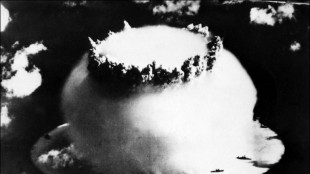
-
 Keys blows hot and cold before making Australian Open third round
Keys blows hot and cold before making Australian Open third round
-
Philippine journalist found guilty of terror financing

-
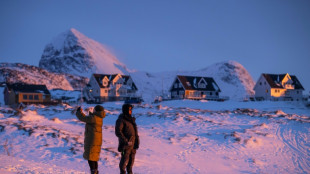 Greenlanders doubtful over Trump resolution
Greenlanders doubtful over Trump resolution
-
Real Madrid top football rich list as Liverpool surge

-
 'One Battle After Another,' 'Sinners' tipped to top Oscar noms
'One Battle After Another,' 'Sinners' tipped to top Oscar noms
-
Higher heating costs add to US affordability crunch
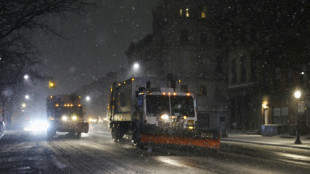
-
 Eight stadiums to host 2027 Rugby World Cup matches in Australia
Eight stadiums to host 2027 Rugby World Cup matches in Australia
-
Plastics everywhere, and the myth that made it possible
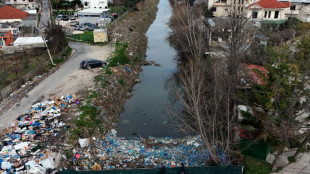
-
 Interim Venezuela leader to visit US
Interim Venezuela leader to visit US
-
Australia holds day of mourning for Bondi Beach shooting victims

-
 Liverpool cruise as Bayern reach Champions League last 16
Liverpool cruise as Bayern reach Champions League last 16
-
Fermin Lopez brace leads Barca to win at Slavia Prague

-
 Newcastle pounce on PSV errors to boost Champions League last-16 bid
Newcastle pounce on PSV errors to boost Champions League last-16 bid
-
Fermin Lopez brace hands Barca win at Slavia Prague

-
 Kane double fires Bayern into Champions League last 16
Kane double fires Bayern into Champions League last 16
-
Newcastle pounce on PSV errors to close in on Champions League last 16

-
 In Davos speech, Trump repeatedly refers to Greenland as 'Iceland'
In Davos speech, Trump repeatedly refers to Greenland as 'Iceland'
-
Liverpool see off Marseille to close on Champions League last 16

-
 Caicedo strikes late as Chelsea end Pafos resistance
Caicedo strikes late as Chelsea end Pafos resistance
-
US Republicans begin push to hold Clintons in contempt over Epstein
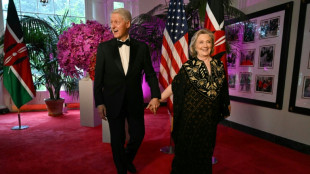
-
 Trump says agreed 'framework' for US deal over Greenland
Trump says agreed 'framework' for US deal over Greenland
-
Algeria's Zidane and Belghali banned over Nigeria AFCON scuffle

-
 Iran says 3,117 killed during protests, activists fear 'far higher' toll
Iran says 3,117 killed during protests, activists fear 'far higher' toll
-
Atletico frustrated in Champions League draw at Galatasaray

-
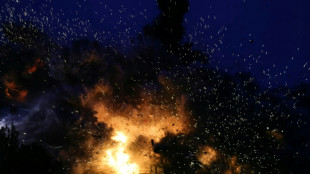 Israel says struck Syria-Lebanon border crossings used by Hezbollah
Israel says struck Syria-Lebanon border crossings used by Hezbollah
-
Snapchat settles to avoid social media addiction trial

-
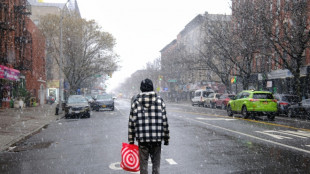 'Extreme cold': Winter storm forecast to slam huge expanse of US
'Extreme cold': Winter storm forecast to slam huge expanse of US
-
Jonathan Anderson reimagines aristocrats in second Dior Homme collection

-
 Former England rugby captain George to retire in 2027
Former England rugby captain George to retire in 2027
-
Israel launches wave of fresh strikes on Lebanon
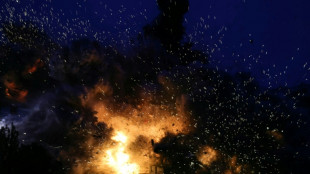
-
 Ubisoft unveils details of big restructuring bet
Ubisoft unveils details of big restructuring bet
-
Abhishek fireworks help India beat New Zealand in T20 opener

-
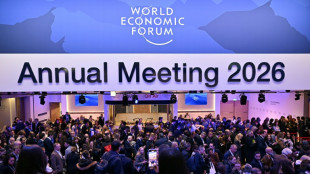 Huge lines, laughs and gasps as Trump lectures Davos elite
Huge lines, laughs and gasps as Trump lectures Davos elite
-
Trump rules out 'force' against Greenland but demands talks

-
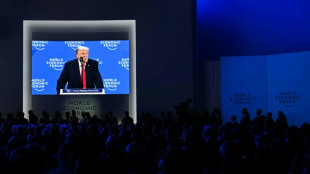 Stocks steadier as Trump rules out force to take Greenland
Stocks steadier as Trump rules out force to take Greenland
-
World's oldest cave art discovered in Indonesia
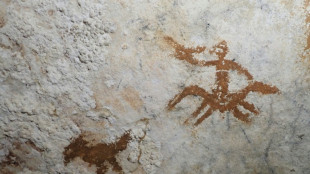
-
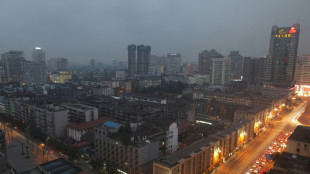 US hip-hop label Def Jam launches China division in Chengdu
US hip-hop label Def Jam launches China division in Chengdu
-
Dispersed Winter Olympics sites 'have added complexity': Coventry
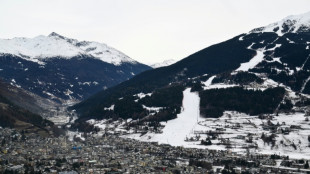
-
 Man City players to refund fans after Bodo/Glimt debacle
Man City players to refund fans after Bodo/Glimt debacle
-
France's Lactalis recalls baby formula over toxin

-
 Pakistan rescuers scour blaze site for dozens missing
Pakistan rescuers scour blaze site for dozens missing
-
Keenan return to Irish squad boosts Farrell ahead of 6 Nations

-
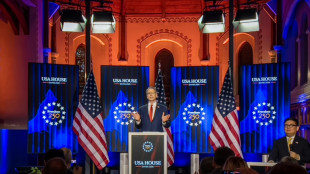 US Treasury chief accuses Fed chair of 'politicising' central bank
US Treasury chief accuses Fed chair of 'politicising' central bank
-
Trump rules out force against Greenland but demands 'immediate' talks


Signs of the human era, from nuclear fallout to microplastics
As scientists make the case that humans have fundamentally transformed the planet enough to warrant our own geological epoch, another question arises: is there anything left untouched by humanity's presence?
Soaring greenhouse gases, ubiquitous microplastics, pervasive "forever chemicals", the global upheaval of animals, even old mobile phones and chicken bones -- all have been put forward as evidence that the world entered the Anthropocene, or era of humans, in the mid-20th century.
Jan Zalasiewicz, a British geologist who chaired the Anthropocene Working Group for over a decade, paused for a moment when asked if there was anywhere on Earth that lacked signs of human influence.
"It's hard to think of a more remote place" than the Pine Island glacier in Antarctica, Zalasiewicz told AFP.
Yet when scientists drilled deep below the glacier's ice a few years ago, they found traces of plutonium.
It was lingering fallout from nuclear weapon tests that began in 1945, leaving behind a radioactive presence unlike anything before.
Zalasiewicz said these radionuclides represented perhaps "the sharpest signal" to mark the start of the Anthropocene epoch 70 years ago.
But "there's an awful lot to choose from," he added.
On Tuesday, the Anthropocene Working Group is expected to announce its choice for the epoch's "golden spike" location, selecting the site that most clearly represents the many ways humans have changed the world.
However the announcement will not make the Anthropocene an official geological time unit just yet, as the world's geologists continue to sift through the evidence.
- The weight of humanity -
Another major calling card of the Anthropocene will likely come as little surprise: the rapid surge in carbon dioxide and other greenhouse gases that are heating the world.
Many things changed "once humans developed the technology to pull fossilised sunshine -- in the form of oil, coal and gas -- out of the ground," Zalasiewicz said.
Humans have consumed more energy since 1950 than was used in the previous 11,700 years of the Holocene epoch, the Anthropocene scientists have shown.
This new power was used to dominate the world in a way not previously possible. Both land and animals were deployed to feed the exploding human population.
Humans and their livestock make up 96 percent of the biomass of all land mammals on the planet, with wild mammals representing just four percent, researchers estimated in 2018.
Supermarket chickens, bred by humans to grow far larger than natural, account for two thirds of the biomass of all birds, Zalasiewicz said.
Humans also reshuffled species across the globe, introducing invasive species such as rats to even the most remote Pacific islands.
- Technofossils, forever chemicals -
In 2020, researchers estimated that the mass of all objects made by humans has now exceeded the weight of all living things on the planet.
The Anthropocene researchers called these objects "technofossils".
Successive generations of mobile phones, which so quickly become obsolete, were just one example of a technofossil that will "be part of the Anthropocene record," Zalasiewicz said.
Smaller pieces of plastic called microplastics have been detected on the planet's highest peaks and at the bottom of the deepest oceans.
Substances called PFAS or "forever chemicals," created for products such as non-stick cookware, are also being increasingly identified across the world.
Pesticides, fertilisers, increasing levels of nitrogen of phosphorus, even the buried skeletons of humans -- the list of potential Anthropocene markers goes on.
The scientists say that hundreds of thousands of years into the future, all of these markers will be clearly preserved to give our future ancestors -- or any other beings who care to look -- insight into this human era.
But what will this future geologist see happen next?
"One of the signals that you would want to see from the Anthropocene is humanity responding in a positive way," said Mark Williams, a British palaeontologist and member of the Anthropocene Working Group.
The fossil record does not yet show a mass extinction, but one "is now very much on the cards," he told AFP.
"We go two ways from here," he added.
So is there somewhere left on Earth that does not bear a human fingerprint?
The scientists agreed that the only such place was likely somewhere under the ice in Antarctica.
But if nothing changes, these ice sheets will be steadily melted by global warming, Zalasiewicz warned.
M.Ouellet--BTB




